Three days ago, GameSkinny associate editor Ashley SSS wrote an article surrounding the myth of Gamergate being a right-wing platform, as well as various other rumors surrounding the group advertised in the mass media. While Ashley’s arguments were sound, and I found it insightful to a degree on the flip-side of traditional coverage of the topic, I did not feel as though it gave me enough history behind the movement. As a result, I decided to do some research for myself.
What I found out was interesting, at least for me…
What the heck is Gamergate anyway?
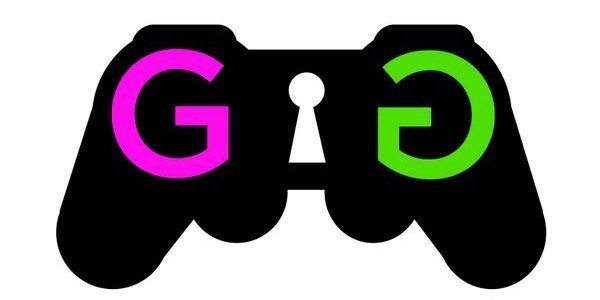
From what I pulled from this article (which was the first to show up with the Gamergate logo on Google Images), Gamergate is nothing more than an attempt at reclaiming and defending the patriarchal definition of masculinity for males in gaming.
While I, for one, have never truly followed the Gamergate controversy in the past, I have certainly read my fair share “shit-posts” against it from outlets such as Kotaku, Tumblr, Polygon, and even 9GAG. Considering that two of these are the most popular video game news outlets on the Internet, I assumed that Gamergate was nothing more than a bunch of angry white boys hiding in their basements, complaining about social interest groups and such. I mean, it’s certainly how they were painted. As such, it wasn’t until Ashley SSS’s article was posted that I took an interest into finding out for myself what was actually going on.
The beginning of the end…
A quick Wikipedia search for the Gamergate controversy leads to this page that discusses a number of flaws with the Gamergate supporters. Everything from the Zoë Quinn controversy to the Anita Sarkeesian one was outlined in detail. Frankly, the website had absolutely nothing positive to say about Gamergate in the least. Despite Wikipedia’s usual policy of ensuring impartial articles, it seems as though the Wikimedia Foundation (and its contributors) undoubtedly side with the anti-GG groups as they found no issue with a clearly single-sided article.
Reading over this content pretty much confirmed what I already read on the aforementioned websites. However, I did find a slight glimmer of redemption for Gamergate in the article by reading between the lines. Regardless of whether or not Zoë Quinn’s alleged ex-partner was telling the truth or not, Gamergate did unite under a somewhat legitimate goal, albeit a terribly misguided one: to expose that someone was allegedly using unethical methods to gain positive press for their game.
Their execution was poor to say the least. From unending bullying, to threatening rape, death, or any other unpleasantries against Zoë Quinn, it is impossible to justify their actions. It’s wrong no matter which way you swing it.
Something didn’t quite sit right with me. I was unsatisfied believing that this was all there was to it. Why would there be Gamergate followers claiming to be against the threats and bullying if that was their goal? There was something more to this, and I had to find out what.
Gamergate is not a group with a designated leader…
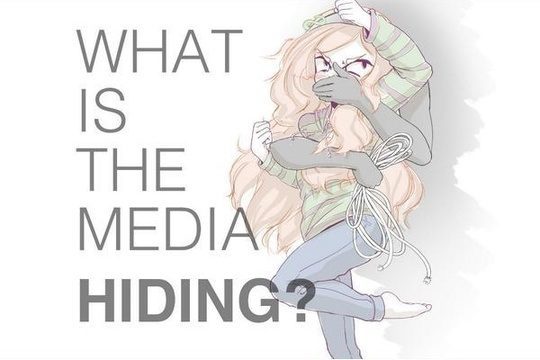
Was Gamergate a victim of the very media censorship it claimed to be fighting against? Was there something more to this story?
Despite the obvious, there is at least one part of me that believes that if Gamergate had targeted a male developer doing the same thing as their first victim maybe – just maybe – Gamergate wouldn’t have received such a negative reputation. In fact, Gamergate seems to frown upon and denounce anyone who has misogynistic tendencies to begin with. An example of this can be seen in this thread where they bash on a “revenge porn” website owner who used #Gamergate in an attempt to gain supporters.
This led me to theorize that not only are the majority of Gamergate followers against misogyny, but that if the Zoë Quinn scandal had not been their first target things would be quite different. I imagine that most of the toxicity of the early Gamergate days were in fact unrelated to Gamergate at all, and were in fact a result of PC media instead broadcasting their initial intentions in a negative light. This would, in turn, lure the toxic group we have come to know into their ranks as they believed Gamergate was a place for people like them to hate on women when in reality it was not.
If Gamergate’s first target was gaming news outlets getting paid to say good things about Bethesda’s games, despite the terrible bugs, then maybe they would have had a much better reputation than they do now
It comes to no surprise, really. After all, the Gamergate Controversy is pretty much nothing more than a bunch of online harassment cases revolving around the #Gamergate tag. Most of the article goes on to talk about how Gamergate is an anti-feminist group, that they are misogynistic, and exploited by right-wing voices that want to take advantage of the gaming community despite their own lack of interest in the situation. While I expected there to be a decent amount of information on Gamergate, as well as the negative press it has received, I also expected there to be something positive for them to say.
Ah, who am I kidding…
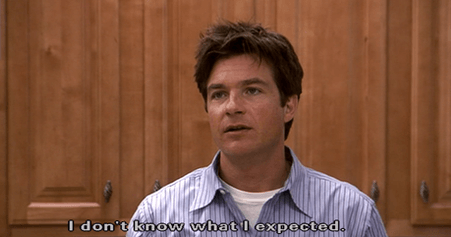
Honestly…
I did notice something important in the Wikipedia article: not one part of the article seemed to address the fact that Gamergate was never – and still isn’t – an institutionalized group. There is no purpose, there is no goal, and there does not seem to be any moderation of who gets to use the #Gamergate name. As such, I decided to look elsewhere for more information.
There has to be some positive press about Gamergate, right?
Not really. In fact, positive commentary on Gamergate is few and far in between. To put it into perspective, by few and far in between I mean as few as there are Fire Emblem amiibo on store shelves in Canada, and by far I mean from here to ULAS J0744+25 (that’s the furthest known star from Earth by the way).
When Gamergate isn’t being labeled as misogynist, radical, or downright vile, it is often seen as a right-wing group (as opposed to the extreme left-wing mass media, at least according to some Gamergate supporters). However, in order to find out what Gamergate truly is, I decided to sneak into their headquarters for a personal look at what is really going on.
Mission: infiltrate /r/KotakuInAction begins!
Firstly, I would like to thank GameSkinny commenter vordreller for revealing to me the not-so-secret location of Gamergate’s headquarters found at /r/KotakuInAction. Armed with nothing more than my anti-nostalgia goggles and my blade of objectivity, I entered the Reddit forum prepared for the worst…
And it honestly wasn’t that bad.
/r/KotakuInAction is a perplexing creature. First of all, KotakuInAction’s name is literally an attack on the well-known gaming website, Kotaku. If Gamergate’s goal is to target so-called “Social Justice Warriors” or “SJWs”, I can’t possibly think of a better namesake. It’s no secret that Kotaku has it in for Gamergate. In fact, they admitted it themselves. Gamergate’s followers have likewise confirmed that KotakuInAction was selected as the name due to Kotaku allegedly being part of the “clickbaiting game” for longer than any other alleged SJW gaming media group.
The extreme division between Kotaku and Gamergate’s views is almost comical. However, I oddly enough find it a necessary balance. Even if Gamergate is as bad as people say, it almost seems destined that such a group would exist. I mean, regardless of which side you see as the good or the bad, it is almost necessary for the other to exist. As such, due to the lack of contrary evidence it would seem that Kotaku and Gamergate are sworn enemies from day one whose destinies were to lock blades in battle for ages to come.
Well put Otacon, well put indeed…
The second thing I noticed was the number of articles talking about censored video games coming (or not coming for that matter) to the United States. I’m assuming – based on the evidence – that Gamergate is mostly composed of North American gamers since most of the news seems to surround gaming issues in North America.
That said, they also seem to target censorship in general, such as this one reddit post involving a student that was banned from cheerleading after tweeting a “political remark”. Other articles and postings included: ReviewTechUSA’s video on DoA Xtreme 3 not coming to the US due to SJW movements, TotalBiscuit’s views on Kotaku being blacklisted by Ubisoft and Bethesda, and Leigh Alexander’s hypocritical views.
While little of this could be considered cold hard news, it does allow for a breath of fresh air from the suffocating levels of media coming from the opposite side of the political spectrum.
The third – and last – thing I noticed was the abundance of images depicting Gamergate’s mascot “Vivian James”.
The art of Gamergate mascot Vivian James
Vivian James, the mascot of Gamergate, was conceived by pro-Gamergate followers who believed they needed a female mascot to show that they are not misogynists – at least according to popular theory. Regardless of whether or not this is true, the character interestingly enough shows very few traits that conform to traditional female stereotypes – especially when contrasted against anti-Gamergate’s Lillian Woods. The differences have been highlighted by a Gamergate supporter in the following image:
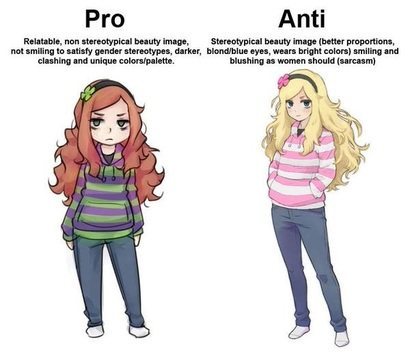
Gamergate’s Vivian James on the left, and anti-Gamergate’s very own parody mascot Lillian Woods on the right
I feel as though the art surrounding this character needs a special mention. As I already mentioned, KotakuInAction is a direct call-out to Kotaku by Gamergate. However, the artwork of Vivian James that serve as the subreddit’s splash arts are actually commentaries in-of-themselves against Kotaku’s own hypocrisies in the social justice department. Here are the examples:
Vivian James as Kotaku’s (old) T-Shirt logo

Vivian James as Kotaku Japan’s original art
It is clear as day that Gamergate goes out of the way to attack Kotaku. I guess it’s to be expected considering the apparent hypocrisy and abundance of pandering that Gawker Media has in general. But honestly, it’s a bit much for my tastes. In fact, it’s almost like an obsession for Gamergate and Kotaku to go at one another. Both sides seem to take fully wound up punches at one another at every possible opportunity, and neither of them seem ready to let bygones be bygones.
I have to say, I am somewhat impressed by Gamergate’s strategy though. It reminds me of Juvenalian Satire in a way. This form of satire typically targets social evil through scorn, outrage, and savage ridicule. In the case of these images, they seemed to have taken this form of satire to heart, penetrating the guise of Kotaku’s “forward thinking” image, and hitting them in the rotten core that they desperately try to hide. Even if Kotaku’s images are old, they have never addressed the change directly. While you can find the images online still, it seems the website has gone to great lengths to conceal them from search engines. Reverse SEO, if you will.
Meanwhile, Gamergate has gone to great lengths to ensure that Gamergate followers do not allow Vivian to succumb to sexualization or Rule 34 of the internet. This has been highlighted first and foremost by this image on imgur found here. Meanwhile, mods of the /r/KotakuInAction subreddit have all but cleansed the forum of any content which actively sexualizes their mascot.
Sorry Gamergate, but a quick Google search will show that it’s already too late to spare Vivian from Rule 34. But hey, at least you tried…
Is this all a case of genetic fallacy?
In the last year, many people have criticized political correctness as being a “fake” form of equality. This has been a major topic throughout South Park‘s season 9 where man known as PC Principal – and his followers – are actively depicted as being PC for for the sake of looking down upon others. The attitude that people have prescribed to politically correct people nowadays has become reminiscent of that which many might see as the goodie-two-shoes archetype: one who is smug about how ‘good’ they are. It is a broad stroked view of what many consider the left-wing of politics; a view shared by a visible group of Gamergate followers.
An example of the PC Principal in South Park
In a previous RR-sama Talks, I looked at the issue of political correctness in gaming, something that Gamergate has been attacking for a long time. However, I do not agree with the process by which a minority of Gamergate followers have attacked women in the gaming industry. When I say a minority, I mean that.
Regardless of how much evidence is presented against a case, no one should have any threats made against them. What I do agree with on the other hand is the Gamergate supporters who make people aware of the unethical going-ons of the gaming journalism scene, as this type of investigative journalism is that of a dying breed. Without these people we would not be able to see the true colors behind the happy faces we are presented by mass media outlets.
Meanwhile – on the opposite end of things – you have media groups like Kotaku, Polygon, and Tumblr users which paint Gamergate as misogynistic right-wingers. They do this by constantly referring back to the Zoë Quinn scandal, and the resulting Gamergate controversy. While they do have merit in their claims that Gamergate has been in the news for its harassment of women in the gaming industry more than anything else, it would be false to continue using this to condemn current Gamergate members.
In fact, Gamergate has not been seen as a controversial force for almost a year now as most of their more aggressive followers have disappeared. In fact, most Gamergate posts on the /r/KotakuInAction board have evolved to call out the flaws in all forms of news media, political figure hypocrisies, and more. Both sides seem to share a sort of genetic fallacy against one another, with either side claiming that their roots in the online world are something to attack without end. I like to think of it almost like the Montagues and the Capulets.
The seventh issue of a pro-Gamergate comic by Kukuruyoart that personifies Gamergate and anti-Gamergate issues through the likeness of Vivian James and her anti-Gamergate counterpart Lillian Woods
So what do you think about this, RR-sama?
When it comes down to it, I think the same thing I think about political correctness in general: both sides are misguided in their good intentions. While I am slightly more critical of Kotaku and other gaming websites for their pandering to the PC audience, I cannot see either party being any more harmful than the other – provided neither gets actively violent. However, with bomb threats called in on either PC or Gamergate social gatherings, I have a hard time believing this is an issue that will end anytime soon – especially with the really negative press Gamergate has received despite the good the group has done.
While I would not say I’m pro-Gamergate per se, I would say that I support the ideas they are founded upon, even if the methods executed by some of them are wrong. The idea of having a clear cut truth in journalism, as well as the return of critical and investigative journalism, is something they support that I would love to see return to the world. Also, as I have stated in my political correctness piece, I would like to see the vocal public get less involved with video game decisions as they – in my humble opinion – hurt the industry by limiting the options available to game developers.
Then again, I don’t care about the sexualization in video games because I’m too busy trying not to lose a life, seeing as that’s the point of the game – not the T&A. I don’t care about the depictions of race in video games because I really don’t care about how people racially discriminate me, seeing as I don’t really think I’d get along with those types anyway. I don’t care about anything other than the plot, gameplay, and presentation – as I do with all of my Rewind Reviews.
At the end of the day, all I want is for everyone to shut up and play video games, a sentiment I share with good ol’ Vivian James – even if she is nothing more than Gamergate’s mascot.
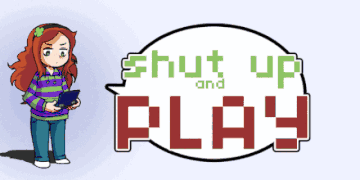

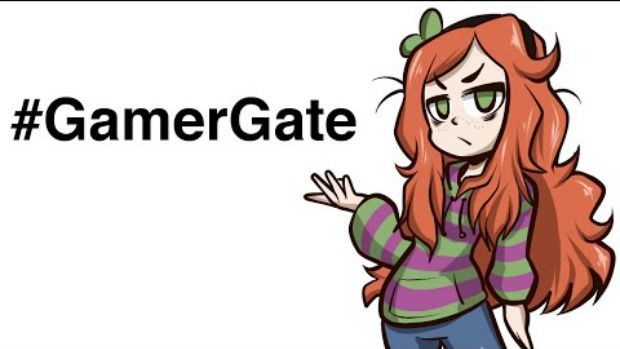
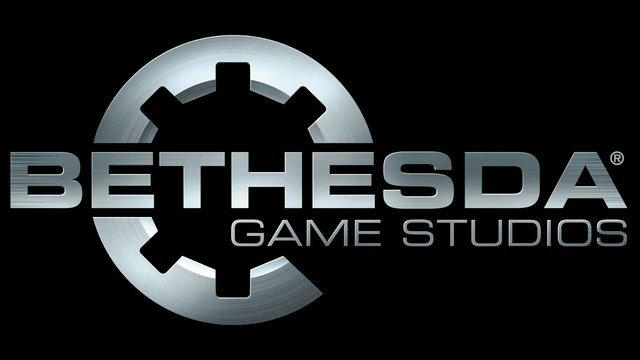
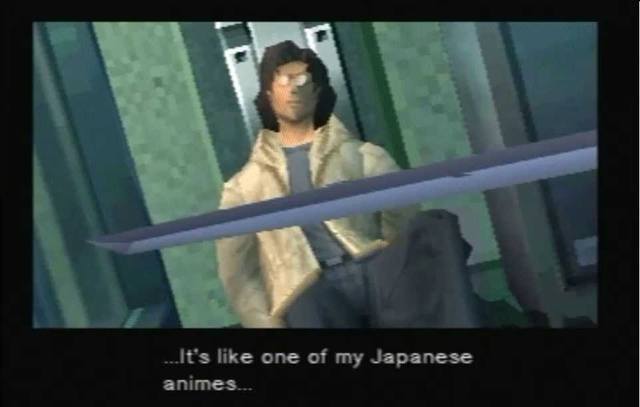
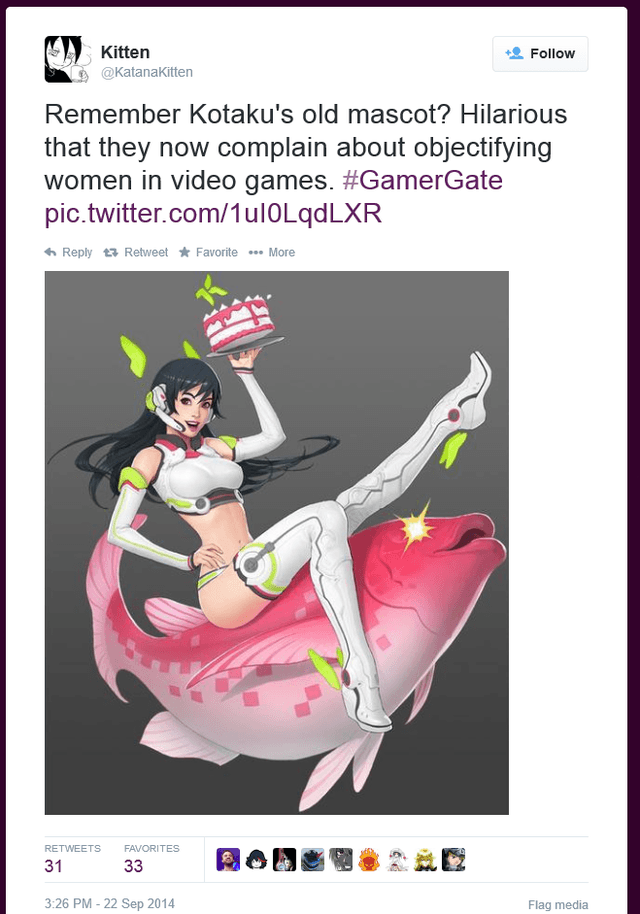
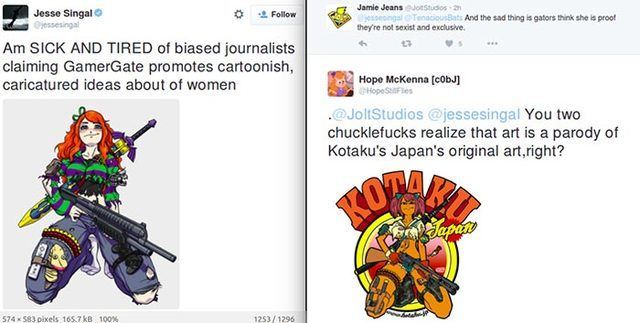
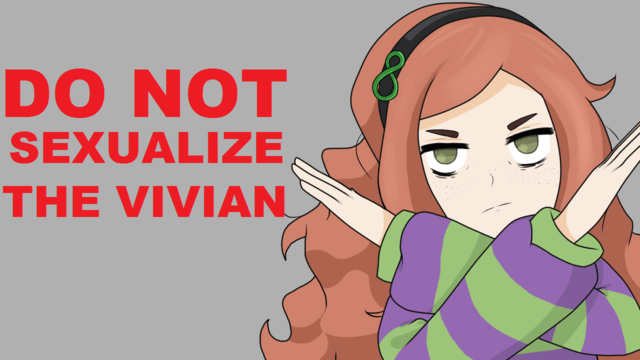
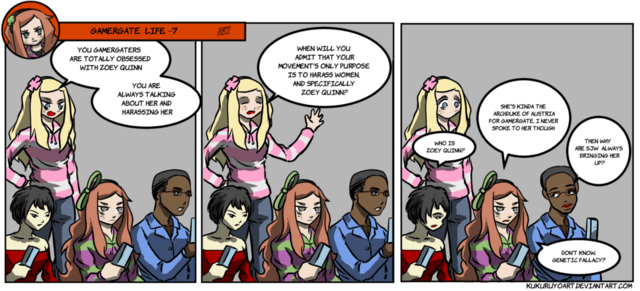





Published: Nov 25, 2015 09:39 am